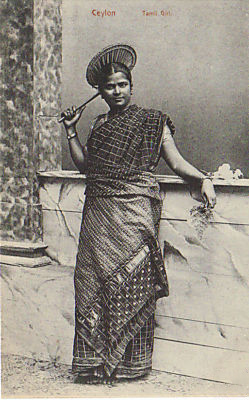UTF-8 is a character encoding standard used for electronic communication. Defined by the Unicode Standard, the name is derived from Unicode Transformation Format – 8-bit. Almost every webpage is stored in UTF-8.

A blog is an informational website consisting of discrete, often informal diary-style text entries (posts). Posts are typically displayed in reverse chronological order so that the most recent post appears first, at the top of the web page. In the 2000s, blogs were often the work of a single individual, occasionally of a small group, and often covered a single subject or topic. In the 2010s, "multi-author blogs" (MABs) emerged, featuring the writing of multiple authors and sometimes professionally edited. MABs from newspapers, other media outlets, universities, think tanks, advocacy groups, and similar institutions account for an increasing quantity of blog traffic. The rise of Twitter and other "microblogging" systems helps integrate MABs and single-author blogs into the news media. Blog can also be used as a verb, meaning to maintain or add content to a blog.

The Sinhala script, also known as Sinhalese script, is a writing system used by the Sinhalese people and most Sri Lankans in Sri Lanka and elsewhere to write the Sinhala language as well as the liturgical languages Pali and Sanskrit. The Sinhalese Akṣara Mālāva, one of the Brahmic scripts, is a descendant of the Ancient Indian Brahmi script. It is also related to the Grantha script.
The blogosphere is made up of all blogs and their interconnections. The term implies that blogs exist together as a connected community or as a social networking service in which everyday authors can publish their opinions and views.

The Tamil script is an abugida script that is used by Tamils and Tamil speakers in India, Sri Lanka, Malaysia, Singapore,and elsewhere to write the Tamil language. It is one of the official scripts of the Indian Republic. Certain minority languages such as Saurashtra, Badaga, Irula and Paniya are also written in the Tamil script.
Censorship in South Asia can apply to books, movies, the Internet and other media. Censorship occurs on religious, moral and political grounds, which is controversial in itself as the latter especially is seen as contrary to the tenets of democracy, in terms of freedom of speech and the right to freely criticise the government.
This is a list of blogging terms. Blogging, like any hobby, has developed something of a specialized vocabulary. The following is an attempt to explain a few of the more common phrases and words, including etymologies when not obvious.

Sri Lankan Tamils, also known as Ceylon Tamils or Eelam Tamils, are Tamils native to the South Asian island state of Sri Lanka. Today, they constitute a majority in the Northern Province, form the plurality in the Eastern Province and are in the minority throughout the rest of the country. 70% of Sri Lankan Tamils in Sri Lanka live in the Northern and Eastern provinces.

The Tamil language has number words and dedicated symbols for them in the Tamil script.
Fashion blogs are blogs that cover the fashion industry, clothing, and lifestyle related topics.
Indic Computing means "computing in Indic", i.e., Indian Scripts and Languages. It involves developing software in Indic Scripts/languages, Input methods, Localization of computer applications, web development, Database Management, Spell checkers, Speech to Text and Text to Speech applications and OCR in Indian languages.
Sinhala language software for computers have been present since the late 1980s but no standard character representation system was put in place which resulted in proprietary character representation systems and fonts. In the wake of this CINTEC introduced Sinhala within the UNICODE standard. ICTA concluded the work started by CINTEC for approving and standardizing Sinhala Unicode in Sri Lanka.
The Indian blogosphere is the online predominantly community of Indian weblogs that is part of the larger blogosphere.
The Hindi blogosphere is the online community of Hindi-language weblogs that are a part of the larger Indian blogosphere.
The rupee sign "₨" is a currency sign used to represent the monetary unit of account in Pakistan, Sri Lanka, Nepal, Mauritius, Seychelles, and formerly in India. It resembles, and is often written as, the Latin character sequence "Rs", of which it is an orthographic ligature.
Indians in Sri Lanka refer to Indians or people of Indian ancestry living in Sri Lanka, such as the Indian Tamils of Sri Lanka.
Sinhala numerals, are the units of the numeral system, originating from the Indian subcontinent, used in Sinhala language in modern-day Sri Lanka.
The Canadian political blogosphere includes political commentary using any social media technology. Its culture differs from that of Europe or the US. The term 'blogosphere' was first formed colloquially in 1999, and has since evolved to mean "the cultural or intellectual environment in which blogs are written and read."

The Tamil keyboard is used in computers and mobile devices to input text in the Tamil script.
Tamil All Character Encoding (TACE16) is a scheme for encoding the Tamil script in the Private Use Area of Unicode, implementing a syllabary-based character model differing from the modified-ISCII model used by Unicode's existing Tamil implementation.





